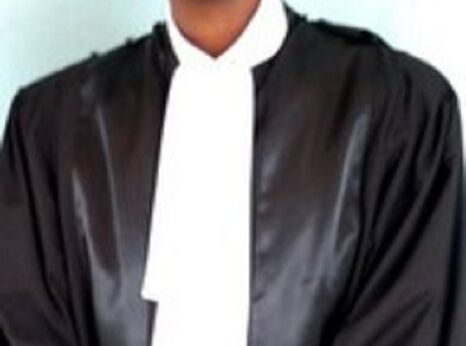Burundi: Lawyer gets 5 year prison sentence

APRODH was one of Burundi’s most active and best-known human rights organizations. Pierre-Claver Mbonimpa, APRODH’s founder and president, narrowly escaped an assassination attempt in 2015 with life-threatening injuries. Pierre-Claver Mbonimpa’s son and son-in-law were both shot dead in 2015. APRODH’s representative in Gitega province, Nestor Nibitanga, was arrested in 2017 and sentenced in 2018 to five years in prison on charges similar to those brought against Tony Germain Nkina. He was released in April 2021 as part of President Évariste Ndayishimiye’s pardon of more than 5,000 prisoners.
Another prominent human rights defender, Germain Rukuki, was arrested in 2017 and sentenced to 32 years in prison in 2018 on trumped-up charges related to his human rights work. His sentence was confirmed by the appeal court in 2019, but the appeal court’s decision was subsequently overturned by the Supreme Court. The appeal court reduced his sentence to one year in June 2021. He was released the same month.
Burundi’s civil society and media organizations were among the first targets of the government repression in 2015. The government suspended or closed most independent human rights organizations and media outlets and drove them into exile. Despite some overtures by President Ndayishimiye towards the media in 2021, the Burundian government continues to view human rights work with suspicion, and severe restrictions on human rights, including the right to freedom of expression, remain in place.
Most independent human rights organizations have been unable to resume their activities in Burundi, especially as the Burundian authorities have issued arrest warrants for many of their leading activists in exile. 12 human rights defenders and journalists were among a group of 34 people sentenced to life in prison in absentia in June 2020 on accusations of involvement in an attempted coup in May 2015; the Supreme Court judgment was not made public until February 2021.
Arrest or detention as punishment for the peaceful exercise of human rights, including the right to freedom of expression, is arbitrary and violates the African Charter on Human and Peoples’ Rights, and the International Covenant on Civil and Political Rights, both of which Burundi is a state party. The UN Working Group on Arbitrary Detention has determined that those detained solely for the peaceful exercise of their human rights must be immediately released.